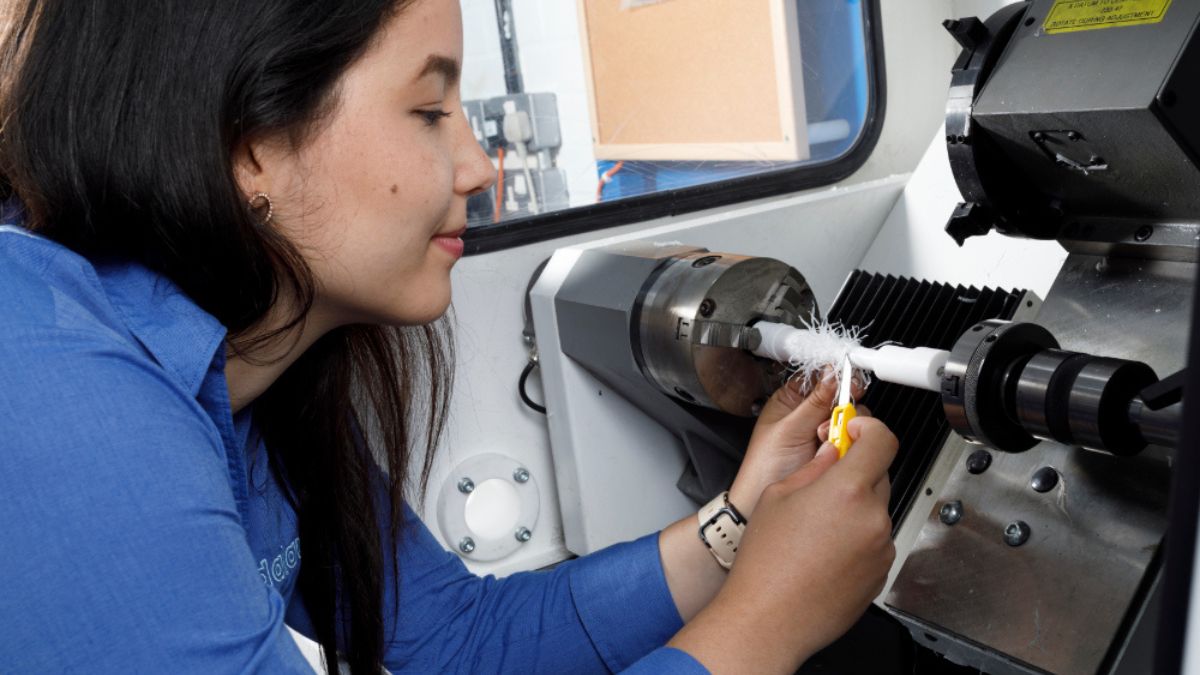PTFE: The Material That Changed Industry
 Back
Back

Polytetrafluoroethylene, commonly known as PTFE, represents one of the most significant material discoveries of the 20th century. Since its accidental discovery by Roy Plunkett at DuPont in 1938, this remarkable fluoropolymer has revolutionized countless industries and become an integral part of modern life.
The story of PTFE’s discovery highlights the role of serendipity in scientific advancement. Plunkett was working on refrigerants when he discovered a white, waxy substance in a pressurized cylinder that had failed to dispense gas. This material would later become known as PTFE, demonstrating unique properties that made it invaluable across industrial applications.
What makes PTFE truly exceptional is its extraordinary combination of properties. With the lowest coefficient of friction of any solid material, it creates virtually frictionless surfaces that revolutionized everything from industrial machinery to household cookware. Its exceptional chemical resistance means it remains stable when exposed to nearly all chemicals and solvents, making it ideal for laboratory equipment and chemical processing facilities. The material’s high thermal stability, allowing it to maintain its properties from -200°C to +260°C, opened new possibilities in extreme environment applications.
In the manufacturing sector, PTFE transformed production processes. Its non-stick properties and chemical inertness made it perfect for lining pipes, tanks, and vessels in chemical plants, preventing corrosion and product contamination. The automotive industry embraced PTFE for bearings, seals, and gaskets, significantly improving vehicle reliability and performance. The material’s excellent electrical insulation properties also made it indispensable in the electronics industry, particularly in high-frequency applications and cable insulation.
Perhaps most remarkably, PTFE found its way into everyday consumer products. The most famous example is non-stick cookware, which revolutionized home cooking and food preparation. The technology, initially marketed under the Teflon brand, became synonymous with convenience and modern living. Beyond kitchenware, PTFE’s water-repellent properties led to its use in waterproof clothing and breathable fabrics, changing outdoor recreation and protective wear.
The medical field has particularly benefited from PTFE’s unique characteristics. Its biocompatibility and chemical inertness make it ideal for medical implants, surgical equipment, and pharmaceutical processing. The development of expanded PTFE (ePTFE) created new possibilities in vascular grafts and other medical applications, saving countless lives through improved medical devices and procedures.
In recent years, PTFE has continued to evolve and find new applications. Advanced manufacturing techniques have led to modified PTFE materials with enhanced properties, opening up new possibilities in aerospace, semiconductor manufacturing, and renewable energy technologies. The material’s role in reducing friction and improving energy efficiency aligns perfectly with modern sustainability goals.
However, PTFE’s success story also comes with environmental considerations. Its exceptional durability means it doesn’t biodegrade, and traditional recycling methods face challenges with fluoropolymer materials. This has spurred innovation in recycling technologies and the development of more sustainable manufacturing processes, demonstrating how even revolutionary materials must adapt to changing environmental priorities.
As we look to the future, PTFE continues to play a crucial role in technological advancement. From enabling the miniaturization of electronic devices to supporting the development of clean energy technologies, this remarkable material remains at the forefront of industrial innovation. The story of PTFE reminds us how a single material discovery can transform multiple industries and continue to enable new possibilities decades after its initial discovery.
For more information on how Dalau can assist you with your project, please get in contact with us today for an informal chat.
 Back
Back
